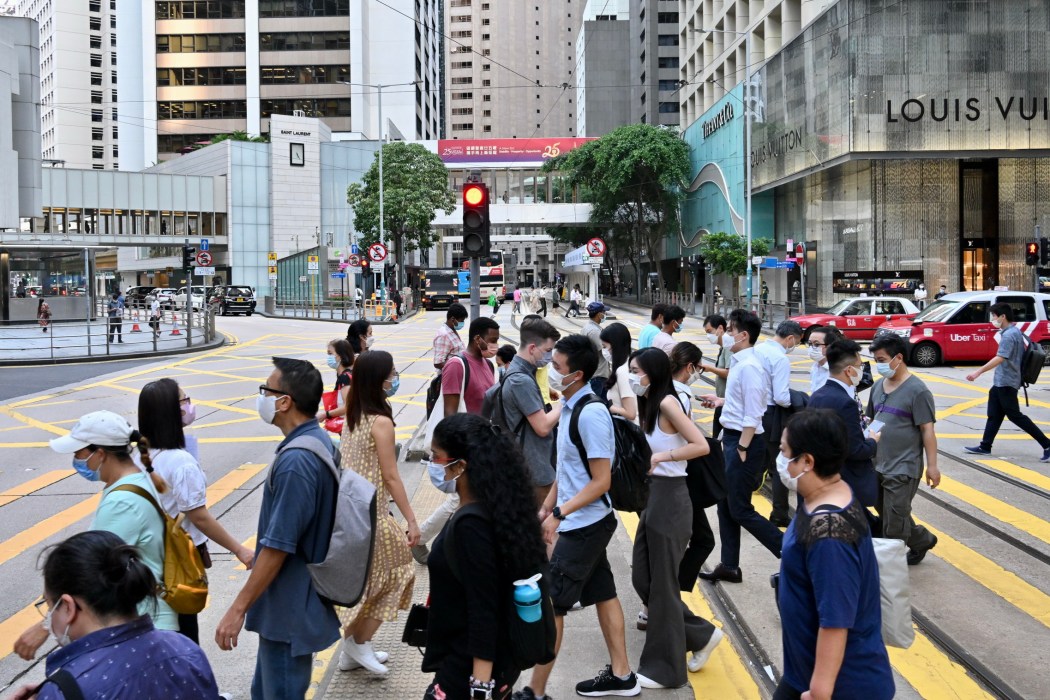The exodus of Hongkongers does not impact the city’s salaries tax revenue, said Hong Kong’s financial chief Paul Chan on Wednesday. Meanwhile, this year’s budget was passed by the “patriots-only” legislature with only one abstention.
Chan’s speech at the Legislative Council (LegCo) came after the Inland Revenue Department announced on Tuesday that there were 2.73 million tax returns for individuals for the 2022/23 financial year, a decrease of 140,000 from the 2.87 million tax returns for individuals in the previous tax year.

Commissioner of Inland Revenue Tam Tai-ping, said on Tuesday that there were different reasons for the decreasing number of individual tax returns issued, including tax cuts, leading to more people falling out of the tax net.
The financial secretary said on Wednesday that, despite the number of tax returns for individuals dropping, the number of salary taxpayers increased from around 1.4 million last year 1.46 million this year.
The city also saw an increase in salaries tax revenue from last year’s HK$77 billion to HK$83 billion this year, said Chan.
“In other words, some people in society are worried that the salaries tax revenue would decrease with the amount of people leaving, but someone has to take their job after people leave, and that person would earn a considerable amount of income,” said the finance chief.
Budget passed with one abstain vote
The first budget under Chief Executive John Lee’s administration was passed on Wednesday at the “patriots-only’ legislature with 82 affirmative votes and one abstention.
The single abstention in the 90-seat LegCo came from Tik Chi-yuen, a self-described “non-pro-establishment” lawmaker.

Tik slammed the government decision to cut recurrent welfare expenses by one per cent, and said that the administration’s poverty alleviation plan lacked concrete goals: “This year, we always talk about KPI (Key Performance Indicators), can you tell me what is the KPI for poverty-alleviation work?” Tik asked.
The city’s electoral system was overhauled in March 2021 to ensure “patriots” govern Hong Kong. The move reduced democratic representation in the legislature, tightened control of elections and introduced a pro-Beijing vetting panel to select candidates.
The Hong Kong government said the overhaul would ensure the city’s stability and prosperity. But the changes also prompted international condemnation, as it makes it near-impossible for pro-democracy candidates to stand.
Support HKFP | Policies & Ethics | Error/typo? | Contact Us | Newsletter | Transparency & Annual Report | Apps
Help safeguard press freedom & keep HKFP free for all readers by supporting our team

LATEST FROM HKFP
HKFP has an impartial stance, transparent funding, and balanced coverage guided by an Ethics Code and Corrections Policy.
Support press freedom & help us surpass 1,000 monthly Patrons: 100% independent, governed by an ethics code & not-for-profit.










